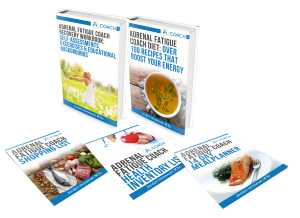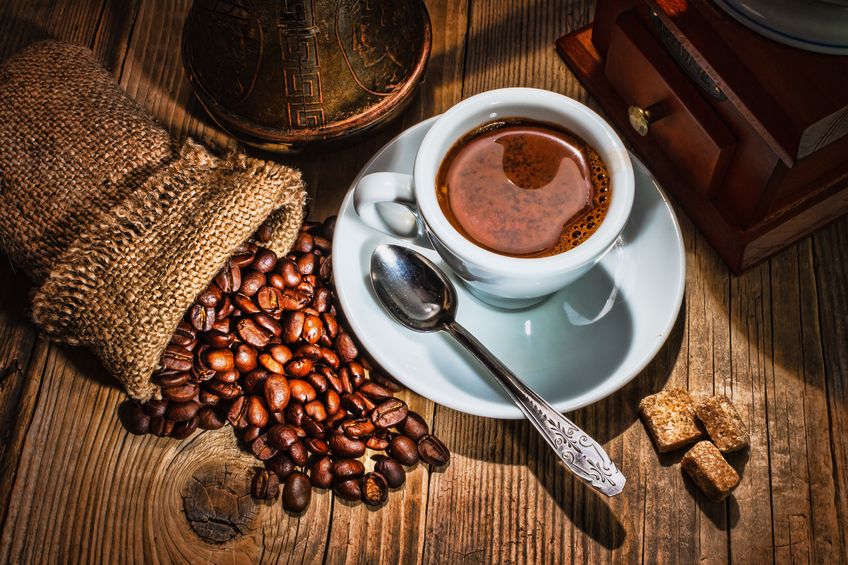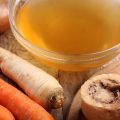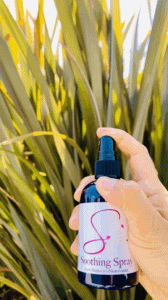May 6th, 2018 •
Comments Off on The Ten Best Teas for Stress and Anxiety Sufferers
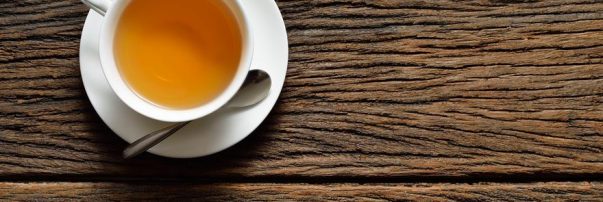
Tea is the world’s most popular drink, on any given day over 159 million Americans alone are drinking tea. Whether you like to enjoy it served hot or cold over ice, tea is a delicious and refreshing beverage that can be enjoyed all year round. But are you also aware of the many benefits it can have on your health?
Research has shown that drinking tea provides a wide range of documented health benefits, including helping to boost your immune system, reducing inflammation, lowering cholesterol and helping improve your memory.
The great news for adrenal fatigue sufferers is that it is also good for stress and anxiety, meaning that your morning cuppa could actually help to improve your mood and make you feel a lot more relaxed. Herbal teas like chamomile, lavender and lemon balm teas are especially beneficial, although even a cup of “regular” tea can actually be good for you.
Stress, stress and more stress
With the fast pace of modern life, stress is something most of us have to deal with on a daily basis. But while a certain amount of stress is actually good for you and helps to boost the performance of your brain, too much of it can seriously affect your daily life and lead to you feeling constantly run down, tired and irritable. It can also contribute to a wide range of serious health issues such as cardiovascular disease and hypertension.
When the stress hormone cortisol is released into your bloodstream, you might start to notice symptoms such as a rapid heartbeat, difficulty concentrating, insomnia, irritability and digestive problems. Although stress is a natural response to a threat or danger, many of us suffer from chronic stress – and that’s an altogether much more serious problem.
Feeling stressed? Time to put the kettle on
Many medications have been developed to help people cope with stress and anxiety, but few people actually realize that just sipping on your favorite tea could actually provide many of the same benefits!
The keys to tea’s health boosting properties are catechins, a type of flavonoid and antioxidant contained in tea that can help to promote good health and wellbeing. Drinking even regular tea can be good for you, but the most beneficial types of tea are herbal teas, which are made from the leaves and roots of plants that are especially good for stress relief.
Herbal teas can help to lower cortisol levels, increase the production of mood enhancing hormones like GABA (gamma-aminobutyric acid), serotin and dopamine, thereby helping you to feel calmer and less anxious. Adding a daily cup of herbal tea to your routine may also be good for those suffering from low mood or energy levels – and it can even help to reduce inflammations that are linked to various diseases like cancer and Alzheimer’s.
Although it is definitely not a “miracle” cure for stress and anxiety, herbal teas have in some instances been found to outperform certain prescribed medications. In short, drinking herbal tea may help those suffering from adrenal fatigue to:
• Reduce stress and anxiety
• Elevate mood
• Boost energy levels
• Promote sleep
• Improve digestion
Additional Benefits of Consuming Tea
Aside from the documented health benefits of herbal tea itself, there is also something to be said for the calming and relaxing effect the ritual of consuming tea can have on your state of mind.
From England to Japan, drinking tea is an event that is enjoyed all over the world. Whether it’s meeting up with friends for English Afternoon Tea or consuming a cuppa as you unwind in the evening, the act of making and drinking tea is highly relaxing and therapeutic. It provides an instantly soothing and calming effect that helps you to forget about the stresses and strains you might have experienced during the day.
In addition, drinking herbal tea can help to support other healthy parts of your daily routine – for example, establishing a good bedtime routine and ensuring that you hit the pillow feeling as relaxed as possible.
The Ten Best Teas for Stress and Anxiety Sufferers
As we have already mentioned, not all tea is created equal – and if you want to gain the most health benefits from drinking tea, it is well worth doing some research to uncover the best varieties…
Below we have compiled a list of the best teas for stress and anxiety relief. All of these tea varieties are natural and caffeine free, so you can enjoy them without any of the harmful effects of caffeine consumption.
1. Chamomile Tea
Chamomile tea is one of the most famous and popular herbal tea varieties – and it is well known for the calming effect it can have on the mind and body, making this a great choice for those suffering from anxiety.
Rich in antioxidants, chamomile tea can be extremely beneficial when it comes to promoting sleep and relaxation. It is also acknowledged for its anti-inflammatory properties and can help to relax the muscles.
Chamomile tea causes drowsiness, so it is best consumed in the evening or just before you go to bed. Many people also like to combine it with lavender for a relaxing and calming blend.
2. Lavender Tea
Lavender tea has a distinctive flavor, with pleasant floral hints and a relaxing undertone of mint. It is known to help relieve stress, improve mood and promote restful sleep, making it a great choice for those who suffer from stress and anxiety. In addition, lavender tea can help with digestive problems and is said to lower inflammation and soothe stomach bloating.
Lavender tea is believed to contribute to better sleep, making it ideal for consumption in the evening. Combine it with chamomile for a delicious blend that will help you to feel relaxed and get a great night’s sleep.
3. Lemon Balm
Lemon balm is found in many blends of green tea and is a common flavoring used in many foods. It is said to help elevate your mood and lower anxiety by reducing cortisol levels.
Lemon balm leaves contain plant chemicals called terpenes, which can help to reduce inflammation and contribute to the herb’s medicinal value. It is sometimes also used as part of the treatment for Alzheimer’s disease.
Lemon balm can be combined with other herbs like valerian and chamomile to create a soothing brew that reduces anxiety and elevates your mood. Lemon balm doesn’t cause drowsiness by itself, but it may be used with other herbs to promote better sleep.
4. Passionflower Tea
Made from the leaves of the passion fruit plant, this blend of tea is especially useful for treating insomnia and promoting a relaxed state. It can be useful to those suffering from generalized anxiety disorder and contains several flavonoid compounds that can help to lower cortisol levels and reduce inflammation.
Passionflower tea can be bought from supermarkets and health food shops, and it also available as an extract.
5. Valerian Tea
Aromatic, flavorful and with numerous medicinal qualities, valerian tea has been used for thousands of years to promote rest, calm and good sleep. It is especially useful for those suffering from insomnia and is commonly combined with hops and lemon balm to be used as a sleep aid.
Other reported benefits of valerian root include reducing anxiety, lowering blood pressure and improving GABA levels, thereby making it easier to rest and relax. Valerian works by lowering cortisol levels and reducing inflammation.
6. Rhodolia/Golden Root Tea
Rhodolia rosea root is one of the best teas for helping with anxiety. It works by promoting the brain’s serotonin production, thereby boosting energy levels and enhancing your mood.
A cup of golden root tea will leave you feeling energized, making this a great tea to enjoy in the morning. It can also be used later in the day for a mid-morning or afternoon boost.
7. Ashwagandha Tea
Ashwagandha is an herb that comes from a nightshade plant called withania smnifera. It is sometimes referred to as “India’s ginseng” and is closely associated with Ayuverdic medicine, a 4,000 year-old holistic healing system that originated in India.
Ashwagandha tea can help with the symptoms of stress and anxiety by reducing cortisol levels in the body. It may also help to give you an energy boost and is often used to treat both mental and physical fatigue. Ashwagandha tea can have some side effects and is known to cause heat in the body, so it’s worth consulting with a healthcare professional before using it.
8. Tulsi Tea
A member of the mint family, Tulsi is popularly known has holy basil and has been used for thousands of years to promote overall health and wellbeing. Although there is a lack of research into the true benefits of using it, Tulsi is an “adaptogen” that may help to reduce anxiety and improve mood. It may help with hormone balance and is also sometimes used to treat certain skin conditions.
You’ll often find tulsi combined with other herbs such as lemon balm and African Rooibos for a delicious blend that provides a sense of wellbeing.
9. Catnip Tea
Commonly used as a cat treat during training, catnip is an herbal sedative that can also be used by humans. Catnip is said to help promote relaxation and sleep, making it a great drink to consume in the evening before going to bed.
As well as aiding sleep, catnip tea can lift your mood and help with digestion problems that may be brought on by anxiety. It is available from specialist herbal tea suppliers, or many people like to grown their own plant and use the dried leaves to make their own delicious brews.
10. Ginseng Tea
Ginseng has long since been used throughout Asia and the wider world to boost overall health and wellbeing. Amongst other things, it is believed to help boost energy levels, improve circulation and increase vitality. Ginseng is one of the best teas for stress and is sometimes used to help treat depression.
As well as “true” ginseng, there is also something called Siberian ginseng, the root of the eleutheroccocus centicocus plant found in Northwestern Asia. It is especially popular in China and Russia, having been used for many centuries to help people combat stress and anxiety. It is a so-called “adaptogen” that may help to support the immune system.
Tips for Buying and Consuming Herbal Teas
Buying Herbal Teas
Pre-made herbal teas are available to buy from a variety of online and offline sources, including specialist shops, supermarkets and health food stores. Most teas are available to buy as either tea bags or loose tea, while other varieties are sold in powered form. It is also possible to buy capsules and extracts.
A word of caution: these herbs aren’t regulated by the FDA or other regulatory bodies, so it is important to make sure you only shop with trusted retailers. Closely check the labels and ingredients before consuming any product.
In addition, many people like to try growing their own herbs from seed. This can certainly be enjoyable and therapeutic in itself!
Finally, there is little doubt that whole leaf teas are much better than tea bags, so you might also want to consider buying a tea infuser to help you create the perfect cup.
Consuming Herbal Teas
Before using herbal tea, it is well worth doing some research on each tea variety and seeking help from a professional when necessary. This is especially the case if you are pregnant or currently suffering from any known medical conditions/allergies. Some herbs may affect prescription medications, so it is certainly a good idea to talk it over with your doctor and let them know that you are considering herbal teas as a treatment for your stress or anxiety.
In addition, herbs can have side effects, so it is important to educate yourself on these before regularly consuming any of the teas we have discussed (or other teas in general). As herbal teas are made from natural plants, it is also possible for some people to experience allergic reactions.
While most herbal teas are safe to consume in regular but small amounts, it is important not to go overboard or try too many different varieties in one go. Instead, start slowly and steadily incorporate it into your daily routine. Over time, you’ll find which herbal teas work best for you (and, just as importantly, which don’t!). Go slowly and watch for any adverse reactions you may have to the tea.
Conclusion
Although they are certainly not a “miracle” cure for stress and anxiety, herbal teas help many people around the world to cope with their symptoms. As we have discussed, tea can be beneficial when it comes to reducing stress and anxiety, elevating mood, boosting energy levels, promoting sleep, improving digestion and much more. A cup of tea, anyone?



